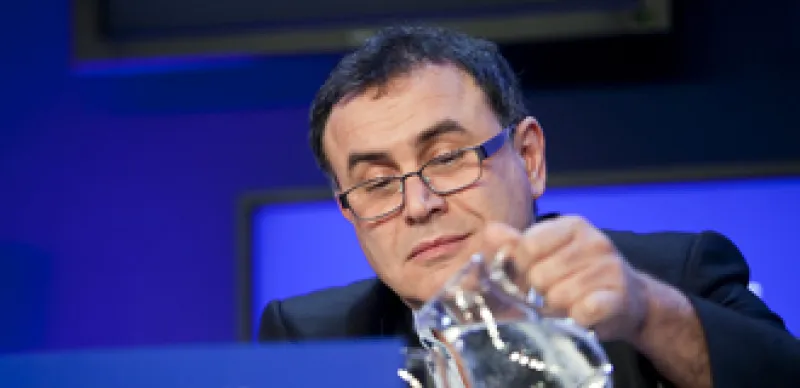
Nouriel Roubini, chairman of Roubini Global Economics LLC, pours a glass of water during a session hosted by Time Magazine on the first day of the World Economic Forum (WEF) Annual Meeting 2011 in Davos, Switzerland, on Wednesday, Jan. 26, 2011. The World Economic Forum in Davos will be attended by a record number of chief executive officers, with a total of 2,500 delegates attending the five-day meeting that starts in the ski resort today. Photographer: Andrew Harrer/Bloomberg *** Local Caption *** Nouriel Roubini
Andrew Harrer/Bloomberg

